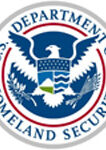Protecting the American people from terrorist threats remains the Department of Homeland Security’s (DHS) highest priority. In order to address radiological and nuclear terrorism threats, the Domestic Nuclear Detection Office (DNDO) was established in April 2005. Responsibilities of the DNDO include: (a) coordinating U.S. government efforts to detect and protect against the unauthorized importation, possession, storage, transportation, development, or use of a nuclear explosive device, fissile material, or radiological material in the United States; and (b) protecting against attacks from persons who plan to use such devices or materials against the people, territories, or interests of the United States.
Collaboration between federal, state, local, and tribal law enforcement and public safety agencies and organizations is crucial to the government’s layered approach to security. To assist DNDO’s state, local, and tribal partners with detecting and reporting radiological and nuclear threats, DNDO developed in 2008 the Mobile Detection Deployment Program (MDDP), which is a national radiological and nuclear detection “surge” asset. MDDP was designed to supplement the existing radiological and nuclear detection and reporting capabilities of first responders, particularly in support of national and other special security events.
Capabilities of Detection Units
Each Mobile Detection Deployment Unit (MDDU) contains radiation detection equipment housed in a mobile trailer package and used by approximately 40 emergency responders. MDDU trailers are stationed in various locations across the United States and are primarily deployed to pre-planned special events – such as sporting events – and to support state and local operations that are driven by intelligence or law enforcement information.
Each MDDU is equipped with vehicle-mounted detection systems that can be temporarily integrated into first responder vehicles. The equipment includes portable backpack radiation detection units, high- and low-resolution radiationentification hand-held instruments, personal detection devices, and interoperable communications and tracking equipment. The detection instruments in each MDDU provide emergency personnel with the ability to detect radiological and nuclear material in a wide range of operational profiles.
In addition, two subject matter experts from a coordinated network of National Laboratories travel with each MDDU. The responsibilities of these experts include: (a) providing the first responders with on-site training; (b) managing equipment distribution; and (c) performing on-site equipment maintenance. The combination of equipment and laboratory experts facilitates the integration of MDDUs into a variety of local law enforcement and other first responder operations.
Requesting Assistance
There are three ways to request the deployment of an MDDU: (a) contact DNDO directly; (b) contact a local Department of Energy Radiological Assistance Program regional representative; or (c) download the MDDU request form from DNDO’s SharePoint website. After the MDDU deployment is approved by DNDO, the requesting jurisdiction will be contacted by MDDU personnel from a National Laboratory, who will deploy with the detection package. The MDDU team lead and the jurisdiction’s planning lead will discuss how the unit will be integrated into existing or developing security plans along with logistics, equipment needs, required training, and deployment dates. The MDDU typically arrives a day or two before an event to allow for pre-event training and mission planning.
Since 2008, DNDO has assisted numerous agencies and thousands of first responders by deploying this important detection capability. In order for state, local, and tribal law enforcement agencies to request an MDDU, they must have a current nuclear detection program structure – with some equipment, training, protocols, and standard operating procedures in place – to ensure that technical reach back and adjudication of alarms and warnings can be handled effectively during the deployment. If needed, DNDO can assist jurisdictions in establishing this level of capability as well.
____________
For additional information on: How to become a partner in this important national security mission; contact the DNDO Program Assistance office: DNDO.SLA@hq.dhs.gov, 1-877-440-3636
DHS’s National & Federal Laboratories & Research Centers, visit https://www.dhs.gov/archive/science-and-technology/national-federal-laboratories-research-centers
DNDO’s SharePoint website, visit https://gnda.energy.gov/login/registration/home.aspx

The Domestic Nuclear Detection Office
The Domestic Nuclear Detection Office (DNDO) is a jointly staffed agency within the Department of Homeland Security. DNDO is the primary entity in the U.S. government for implementing domestic nuclear detection efforts for a managed and coordinated response to radiological and nuclear threats, as well as integration of federal nuclear forensics programs. Additionally, DNDO is charged with coordinating the development of the global nuclear detection and reporting architecture, with partners from federal, state, local, and international governments and the private sector.
- This author does not have any more posts.






